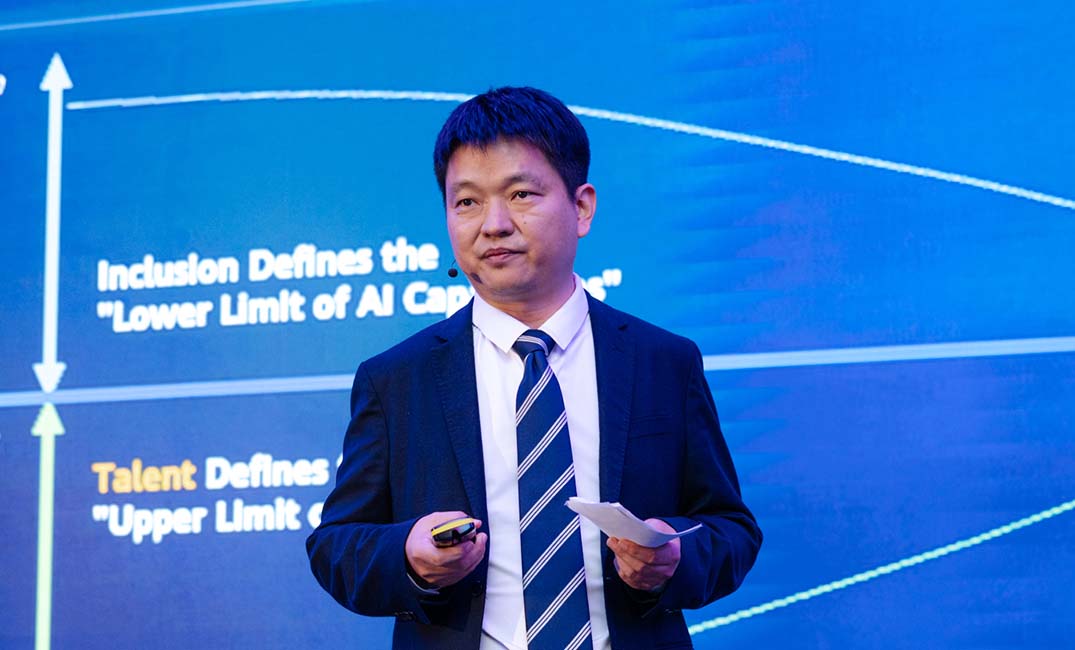Kathy Gibson reports – By 2030, more young Africans will enter the workplace than the rest of the world combined – and it’s critical that this youth cohort is able to takes its place in the digital economy.
This is the word from John Omo, secretary-general of the African Telecommunications Union, who points out that about 70% of the continent’s people are currently under the age of 30.
We need to ensure this massive youth dividend is not a lost opportunity, he tells the Ministerial Forum taking place today on the sidelines of Africa Tech Festival in Cape Town.
“Today, three out of five young African lack the skills required to participate in the digital economy – so our demographic strength could become a lost opportunity.”
Africa is behind the curve when it comes to digital infrastructure, with just 1% of the world’s AI capacity on the continent, and just four countries attracting most of the startup funding.
“It we do nothing, AI will deepen inequalities instead of narrowing the gap,” Omo says. “We need to find a way of nurturing talent without people having to leave the continent.”
It’s critical that Africa shift from simply using AI to building it, he adds. This will only be achieved if governments, businesses and universities all work together to share resources, set standard and align policies.
The continent is strong on policies, but individual countries need to align their policies and work together to build continent-wide infrastructure.
“We all acknowledge that AI brings immediate value when built on the right foundations,” says Omo. “As Africans we must invest in the basics: building infrastructure, training and running AI models, and equipping young people with the right skills.”
Hover Gao, president: sub-Saharan African region at Huawei, agrees that Africa needs to leverage AI to build an intelligent economy.
“AI is the growth engine for economic development,” he says.
By 2030, the intelligent economy will reach $18,8-trillion in value, at a compound annual growth rate (CAGR) of 18%.
Eighteen African countries have already launched AI strategies, along with a continent-wide strategy from the African Union (AU).
But, in order to leverage AI, we need to radically increase the computing power on the continent, which means overcoming the ongoing issue of insufficient power. In Africa, there is also a lack of localised large language models (LLMs); there is poor access to reliable data; and security remains a challenge.
Gao believes African countries can do a lot to overcome these challenges by developing national AI computing centres that centralise investment and could create a virtuous cycle of innovation.
Benefits of a state-sponsored AI computing centre include the ability to accelerate digitalisation and enabling the development of local LLMs, while ensuring data sovereignty.
“African countries should be developing their own AI models,” Gao says. “Africa is a highly diverse continent, with many different languages, laws and data. So global models must be trained and adapted to African needs.”
This approach means that each country will have AI data sovereignty while lowering development cost and enabling higher efficiency.
The bottom line should be measured in enhanced national competitiveness, Gao concludes.

Steven Luo, deputy-GM at Huawei Global Training Centre, stresses that empowering AI talent is key to building intelligent competitiveness.
As the technical barriers to embracing AI get lower, more organisations are able to adopt and apply these systems.
But, at the same time, the availability of talent is a major stumbling block to AI adoption.
Indeed, it has been suggested we will face a global AI talent shortage of 10-million people by 2030, Luo says.
So it’s important for countries to take action now if they hope to address the future skills shortages.
Many countries in Africa has published strategy documents, the AU has a policy, and most enterprises are working on their own roadmaps.
“We believe AI will become a fundamental skill,” Luo says. “Everyone needs to understand and use AI.”
This include management, where they must be a forward-thinking vision, clear directions and strategies; technical teams that are responsible for development training and AI models; and business talent that need to learn how to apply these models in practical scenarios.
Luo recommends that enterprises develop a role-based AI talent competence framework than use a combination of training and recruitment to fulfill the goals.
“Talent development needs to be a systemic project, and should be tackled on a national level,” he says. “It requires government policy support, and collaboration with industries and institutions.”
He adds that Huawei aims to train 10 000 Africans in AI skills.
